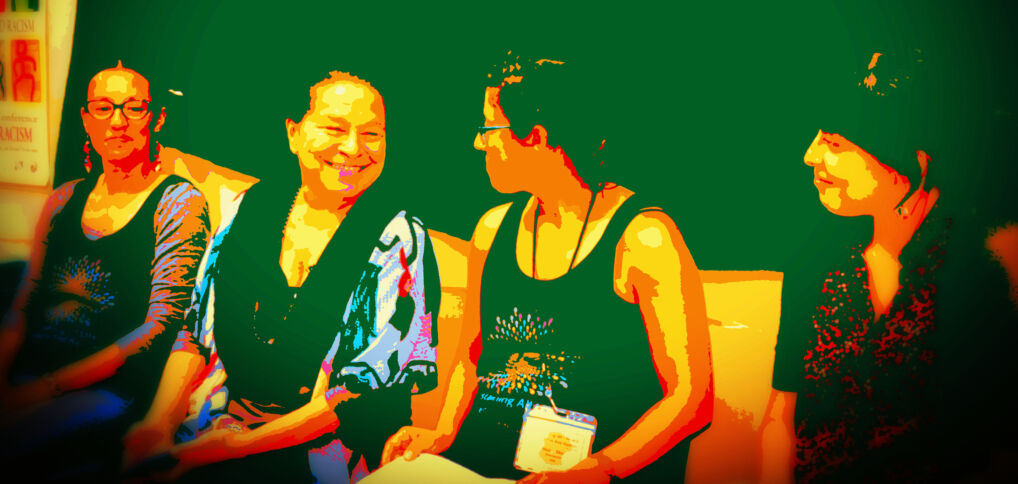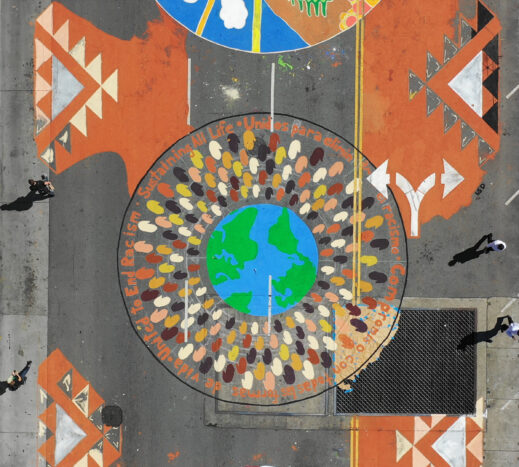
View this resource
as a PDF >>
****
View this resource
in Dutch >>
****
View this resource
in French >>
****
View this resource
in Spanish >>
Women are primary caregivers. Our work makes it possible for humans to survive and flourish. We build networks of supportive relationships. We build communities.
The climate emergency and other environmental destruction directly and disproportionately impact us and the essential work that we do. They threaten sources of food and water. They throw our supportive networks into chaos.
The history of women’s oppression has led to women having lower economic status and less political power than men. The systemic and structural sexism built into our institutions and society, and the rigid roles it imposes, limit women’s access to the resources and experiences that can better prepare them to handle disasters and adapt to climate change. Women who face multiple oppressions—Indigenous women, women in the Global South, women of the Global Majority*1, poor women, women with disabilities, young women—are hit the hardest.

Climate change creates societal instability. Rape and other forms of sexual violence increase. In North America, the construction of new fossil fuel pipelines (for example, the Keystone XL, Dakota Access, and Line 3 pipelines) creates large settlements in geographically isolated areas that are primarily populated by men. This leads to human trafficking and sexual violence. Many of those targeted are Native women who live in the territories through which the pipelines are built.
Many women in the Global South engage in subsistence farming. They produce between 40% and 80% of the food, as well as collect fuel and water. (In those households where water needs to be collected, women and girls are primarily responsible.) With increasing droughts, floods, and other erratic weather events, the burden on women increases. It is more difficult for them to meet their families’ needs for food, water, and energy. It is also harder to generate income or obtain an education.

According to the United Nations, eighty percent of the people displaced by climate change are women. Yet women are less than thirty percent of those who decide policy in national and global climate negotiating bodies. Sexism limits women’s leadership. Women are brilliant. We understand the importance of human relationships. We know how to create rather than destroy. We should be central to solving the climate crisis.
In addition to damaging everyone’s lives, sexism and male domination stand in the way of solving the climate emergency. The practices of Sustaining All Life, No Limits for Women and United to End Racism— listening to each other without interruption and supporting each other’s natural healing processes (laughing, crying, talking, and shaking)—allow women to heal from the damage done by sexism and male domination. This can change the power dynamic, making it possible for women’s voices to be central in decision-making, and for women and men to be strong allies in ending climate change.
- *The peoples of Africa, Asia, the Pacific Islands, the
Caribbean, and Latin America, and those descended from them, and Indigenous people, are over eighty percent of the global population. These people also occupy most of the global land mass.
Using the term “Global Majority and Indigenous (GMI)” for these people acknowledges their majority status in the world and interrupts how the dominant (U.S. and European) culture assigns them a minority status.
Many Global Majority and Indigenous people living in dominant-culture countries have been assimilated into the dominant culture—by force, in order to survive, in seeking a better life for themselves and their families, or in pursuing the economic, political, or other inclusion of their communities. Calling these people “Global Majority and Indigenous” contradicts the assimilation.


